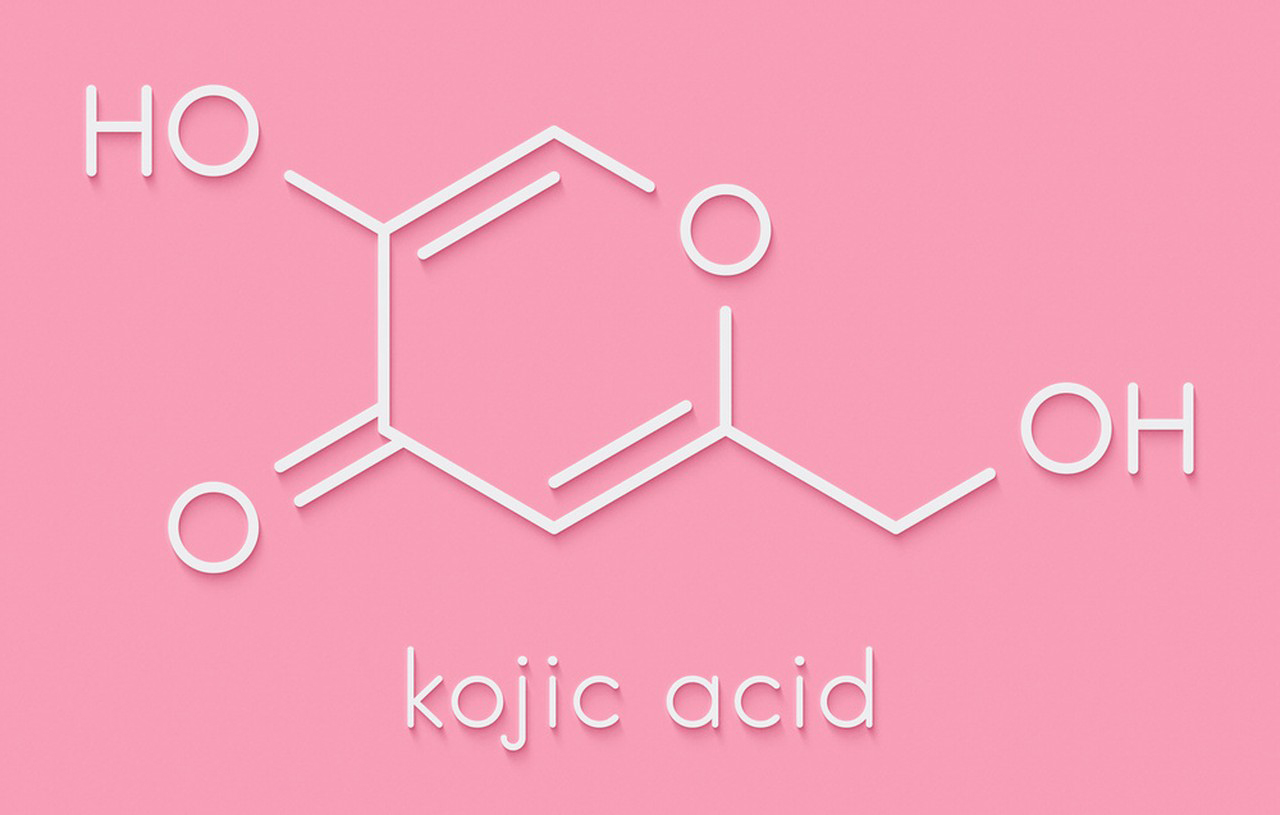Kojic acid is a naturally occurring organic compound that is often used in various skincare products and cosmetics due to its skin-lightening and anti-aging properties. Here is some information about its chemical structure and physical properties:
Chemical Structure of Kojic Acid:
- Chemical Formula: C6H6O4
- IUPAC Name: 5-Hydroxy-2-(hydroxymethyl)-4-pyrone
- Structural Formula:

Physical Properties of Kojic Acid:
- Appearance: Kojic acid is a white or cream-colored crystalline powder.
- Odor: It is odorless.
- Solubility: Kojic acid is soluble in water, alcohol, and some organic solvents.
- Melting Point: The melting point of kojic acid is approximately 152-155°C (305-311°F).
- Boiling Point: It does not have a distinct boiling point as it tends to decompose before boiling.
- pH: Kojic acid is typically used in slightly acidic formulations, as it is more stable in acidic conditions. Its optimal pH range for stability is around 3-5.
- Stability: Kojic acid can be sensitive to light and air, which can cause it to degrade over time. To maintain its effectiveness in cosmetic products, it is often stored in opaque containers and used in formulations that protect it from oxidation.
Uses of Kojic Acid:
Kojic acid is primarily used in the cosmetic and skincare industry for its skin-lightening and anti-aging properties. It is often included in products such as skin creams, serums, and soaps to:
- Inhibit the production of melanin, which can help reduce the appearance of dark spots, age spots, and hyperpigmentation.
- Brighten the skin and even out skin tone.
- Provide antioxidant and anti-aging benefits due to its ability to scavenge free radicals.
However, it’s important to note that while kojic acid is generally considered safe when used in skincare products at appropriate concentrations, it can cause skin irritation in some individuals. It should be used with caution, and a patch test is recommended before using products containing kojic acid, especially for those with sensitive skin.
Additionally, regulations regarding the use of kojic acid in cosmetic products may vary by country, so it’s essential to follow local guidelines and consult with a dermatologist or skincare professional if you have specific concerns or skin conditions.
